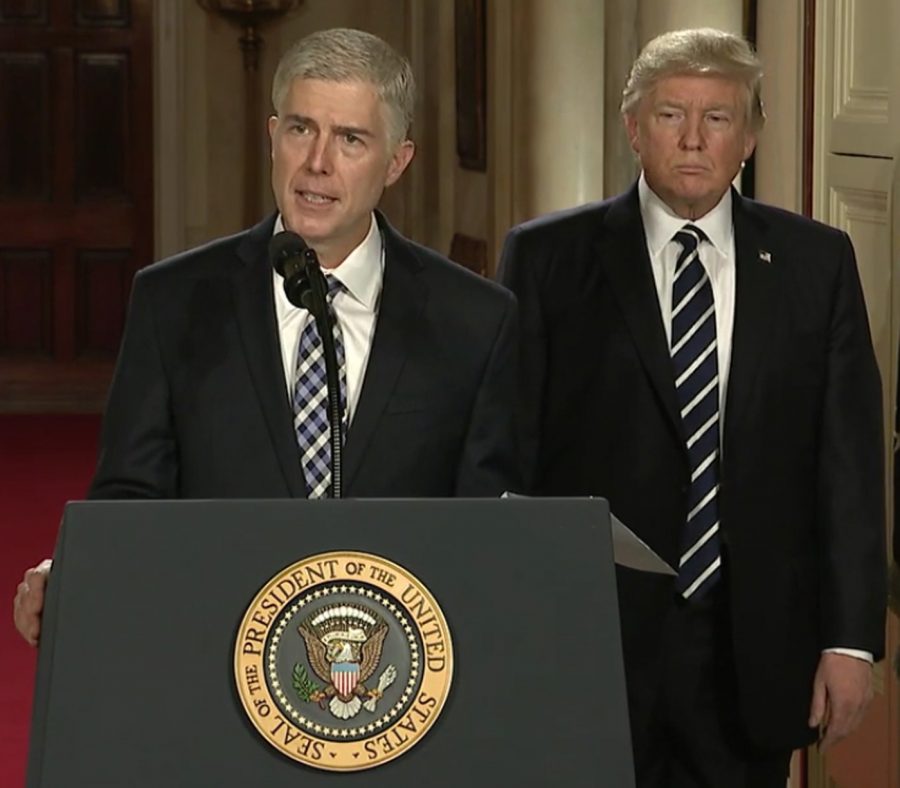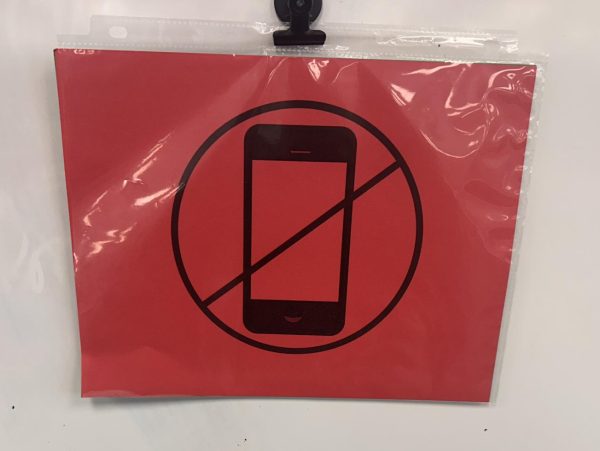Neil Gorsuch confirmed
After using ‘nuclear option’, Senate approves President Trump’s nominee
Supreme Court Justice Neil Gorsuch accepts President Donald Trump’s nomination for Supreme Court Justice. Gorsuch fills the vacancy left behind by the late Supreme Court Justice Antonin Scalia.
April 19, 2017
When finding out that the United State’s Supreme Court had a new member, junior Kaylie Turner was taken by no surprise as she suspected Neil Gorsuch to be approved. Government teacher Bonnie Tempest, on the other hand, was unsure about what would happen before finding out. President Donald Trump had nominated Gorsuch on January 31, 2017 and he was confirmed on Friday, April 7, 2017.
Although Gorsuch’s confirmation period was shorter than most others, the 62 days it lasted included a filibuster, which is where different senators talk for as long as they can on the floor of the Senate. This ended with a change in Senate precedent that is decades old, when senate majority leader Mitch McConnell decided to bring the nuclear option into play, which ended the filibuster.
“If they were just going to go nuclear they could have nominated anybody,” Turner said.
Going nuclear is allowed, because a three-fifths majority vote is not required by the United States constitution. The nuclear option allows for only a simple majority of 51 votes for a Supreme Court Justice to be confirmed.
“The republicans have the majority in Congress,” Turner said, “So, I knew the minute Trump nominated a republican, (the nominee) would get through.”
While she doesn’t completely disagree with Neil Gorsuch,age 49, Turner definitely disagrees with the nuclear option being available. Tempest feels the same way, that the nuclear option should not have to come into play, as it is a chance to give each side a chance to speak.
As she understands that it is not constitutional, Tempest suggests putting it in the rules that going nuclear should not be allowed.
“The filibuster is there to protect the minority from the majority doing whatever they want,” Tempest said, “That’s one of our concepts of democracy.”








